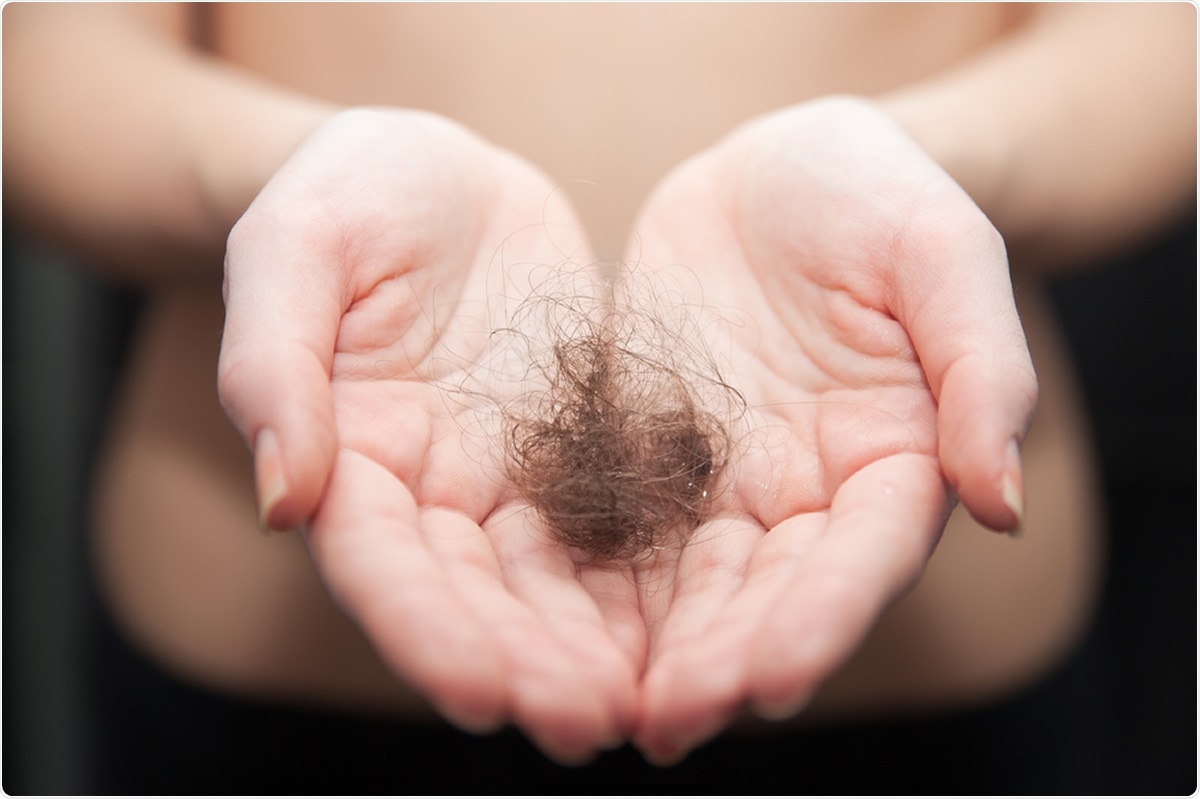The coronavirus disease (COVID-19) causes a multitude of complications of patients. Several studies have shown that those who recovered from the infection had lung problems and heart issues.
Now, a string of patients has reported an unusual complication after recovering from the coronavirus disease – hair loss.

Image Credit: carol.anne / Shutterstock
Several members of Survivor Corps, the Facebook support group of people who have had COVID-19, recently tackled about experiencing hair loss months after recovering from the wrath of the severe acute respiratory syndrome coronavirus-2 (SARS-CoV-2).
“Any extreme hair loss months after infection? I had COVID-19 in March, started having huge hair loss/turnover in June. I have a ridiculous amount of hair, so no balding or anything like that, but I’m losing a lot,” one of the group members said.
While the U.S. Centers for Disease Control and Prevention (CDC) has information on when it is alright to end home isolation after a COVID-19 infection, there is limited data on the lasting side effects of the illness.
In one letter published in JAMA, a team of researchers studied data from 143 patients who recovered from COVID-19 and discovered that 44 percent said they had a worsened quality of life. Many recovered patients report lingering cough, fatigue, joint pain, difficulty of breathing, and chest pain. However, there was no single report on hair loss.
Some experts are left baffled on how COVID-19 could cause hair loss after recovery.
“Hair loss is a well-described phenomenon after any physiological stress on the body,” Dr. Amesh A. Adalja, infectious disease expert and senior scholar at the Johns Hopkins Center for Health Security, said.
COVID-19 and hair loss
What may have caused hair shedding in patients who had COVID-19? Doctors believe that hair loss can be tied to telogen effluvium, a temporary condition where people experience excessive hair shedding after a stressful life event.
About 85 to 90 percent of the hair on a healthy person’s hair is in the anagen phase or the active stage of growth. The rest of the hair is in a resting phase, also known as the telogen phase. Hair shedding is normal since the hair remains in the anagen phase for about two to four years, then go into the telogen phase, where they fall out to be replaced by new ones.
In the condition called telogen effluvium, more hairs are going into the resting phase, resulting in more hair falling out, particularly from the top of the scalp. Some of the factors that may cause this condition include major surgery, significant stress, physical trauma, extreme weight loss or sudden dietary changes, high fever or severe illness, sudden hormone changes, hypothyroidism, hyperthyroidism, and iron deficiency, among others.
According to Dr. Esther Freeman, the one in-charge of the Dermatology COVID-19 Registry, a database of dermatologic manifestations of COVID-19 that has 1,000 cases from 38 countries, said there had been a growing number of people reporting hair loss after recovering.
She noted that hair loss is not a surprising phenomenon since people start to see hair loss about three months after getting sick or a stressful life event. The recovered patients reported hair loss early in July, and they were infected between April and May.
What to do
While hair loss related to a stressful even is just temporary, it can be stressful. Doctors recommend to have proper nutrition, especially eating foods rich in iron and vitamin D. Further, hair loss supplements can help restore hair health, reducing hair fall.
Telogen effluvium is painless and does not involve other symptoms such as itchiness and scaling. However, when patients experience hair loss with other symptoms such as a burning sensation in the scalp, they need to be evaluated by a dermatologist.
The coronavirus pandemic has now affected 188 countries and territories across the globe. The number of cases has reached 18.73 million, with a death toll of more than 706,000. Of these, the number of people who have recovered has surpassed 11.3 million people.
Sources:
Journal reference: